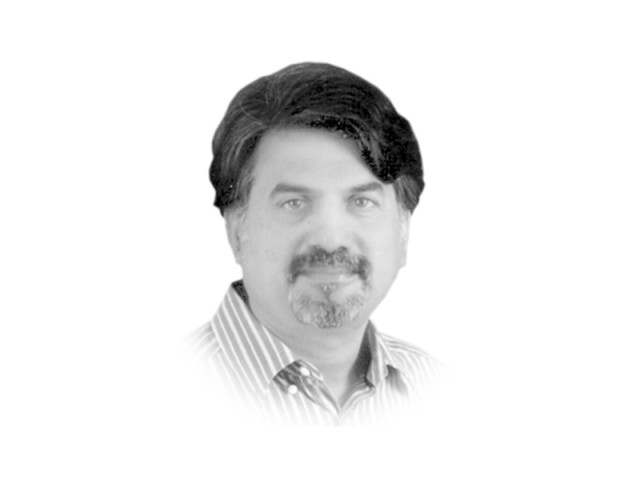General Sharif’s US visit
It is hoped that the entire nation will stand behind its military commander for him to achieve this mission

While US policymakers, generals, diplomats and spies must be taking note of all these statements, it is the personal assurances from our military commander that interested them the most. We know already that unlike his predecessors, General Sharif has put in place a more successful military strategy to deal with terrorism — a strategy liked and appreciated by the Americans. Rarely would the Americans want anything from us that would differ from their interests and their aims. So, for General Sharif to stand on American soil and say, “Zarb-e-Azb is not just a military offensive but is a concept to defeat terrorism in all its forms and manifestations. The anti-terror campaign is not restricted to Waziristan and Khyber tribal areas but covers the whole country” must have pleased and overjoyed his hosts.
Militaries of both countries have been engaged in fighting the war on terror for years now. One common lesson that both militaries should have learnt by now is that a military victory only comes by controlling the politics of the situation. Of the US military actions in Kosovo, Afghanistan, Iraq and Libya, only the one in Kosovo can be termed a success and that is because the control of politics played a huge role there.
Military objectives, no matter how well defined and purposeful, will remain narrow if the political ends are continued to be ignored. A failing military strategy, if re-evaluated, can be turned into a success. This has been proved by General Sharif himself. But to complement the military efforts, the civilians have to take over the control of the affected areas and fill the political vacuum with a determined effort.
General Sharif visited the US Central Command Headquarters in Florida. He met US senators, General Lloyd Austin, the chief of the US central command, National Security Adviser Susan Rice, Deputy Secretary of Defence Bob Work, Chairman of the Joint Chiefs of Staff General Martin Dempsey, and US Special Representative for Pakistan and Afghanistan Dan Feldman. All these were high-profile engagements with the US national security team and policymakers. The Americans are smart. They know there is no military commander who will ever say that he is not making progress in his area of operation. No military commander when invited to the US is ever expected to say that the situation is getting worse. Given the resources, it is in the nature of any military commander — with General Sharif being no exception — to say that ‘all challenges will be overcome’. Pakistan has a military history in which few senior military officers have emerged from wars with their reputation improved or intact — General Niazi, General Yahya Khan, General Tikka Khan (1971 war), General (retd) Musharraf (Kargil) and General (retd) Ashfaq Parvez Kayani (war on terror). So, for General Sharif the challenge is huge. At the level of the military institution, it is most likely that he may have carried two important lessons from the US. One, in recent US military history, General David Petraeus is referred to as the most successful American general. But he did not attend the war college for his mid-career studies. He instead got his PhD from Princeton University. His ‘strategic intelligence’, more than his ‘operational excellence’ contributed to the military success that the US enjoyed in Iraq. Though Iraq is again demonstrating the degree of violence that it suffered before 2008, the military success that General Petraeus achieved is well recognised and documented. The point I am making is that in our system of promotion in the military, attending war courses is an absolute essential without which an officer cannot become a general. However, like the US, we also need ‘strategic intelligence’ to be part of our military thinking. This should go a long way in combating the ‘system of conformity’ and ‘can do’ culture in which senior officers end up doing mostly what their predecessors had done.
Secondly, Pentagon has introduced a school dedicated to governance — the US Army John F Kennedy Special Warfare Center and School at Fort Bragg, North Carolina. The creation of such a school by our military may also bring rich dividends. In a civil-military joint venture, the knowledge, skill and experience gained at such a facility may prepare a civil-military force that can not only create a competent and sound administrative structure in our ungovernable tribal areas, but also eventually create the right circumstances for the exit of our military from that region.
General Sharif, during his visit, was conferred with the US Legion of Merit Medal “in recognition of his brave leadership and efforts to ensure peace in the region”. It is hoped that the entire nation will stand behind its military commander for him to achieve this mission.
Published in The Express Tribune, December 9th, 2014.
Like Opinion & Editorial on Facebook, follow @ETOpEd on Twitter to receive all updates on all our daily pieces.















COMMENTS
Comments are moderated and generally will be posted if they are on-topic and not abusive.
For more information, please see our Comments FAQ